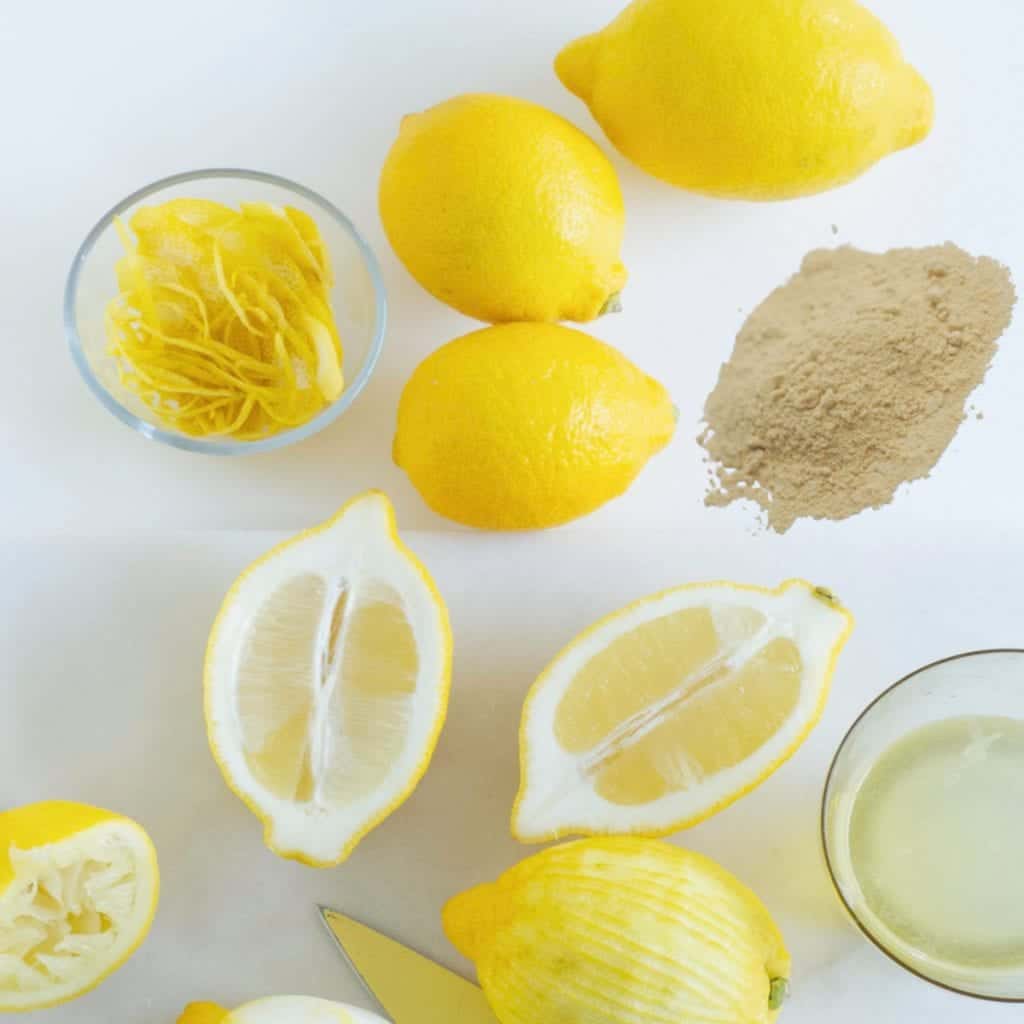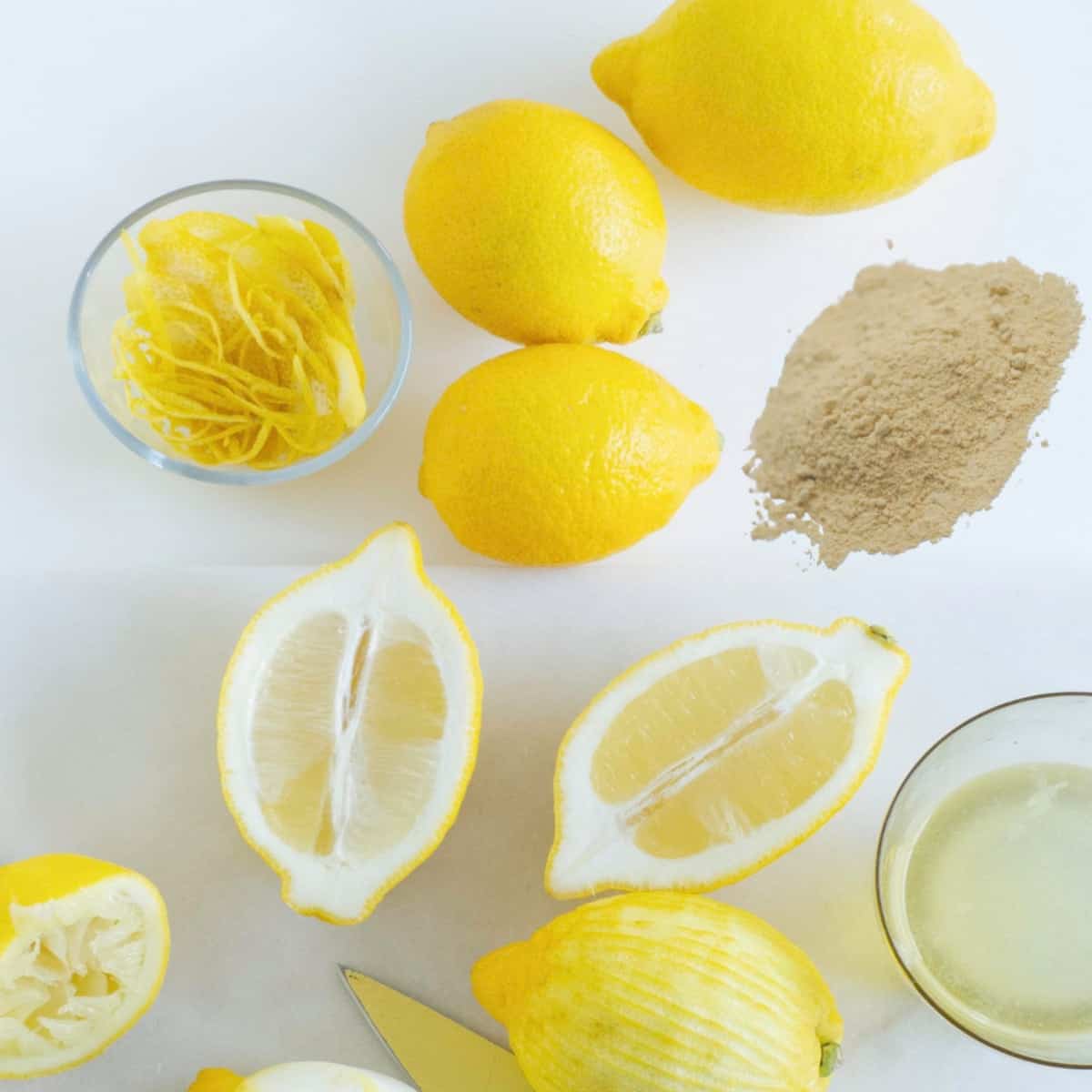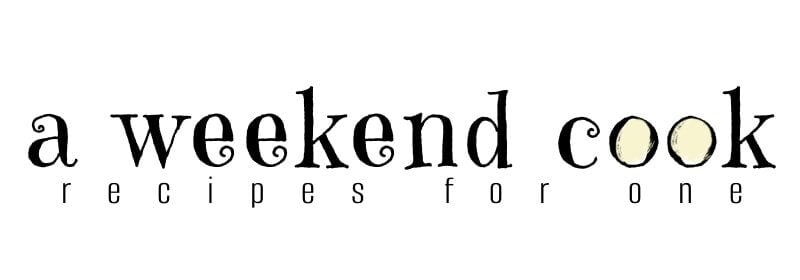I use a lot of lemons, but I don’t always have them handy. When the mood strikes at 8 p.m. to whip up a batch of lemon cookies, and no fresh lemon is in the house, lemon juice powder steps in. The powder is a shelf-stable product and should be in every lemon lover’s pantry.
For more tips check out this post about stocking a cooking for one kitchen.

Where can I buy lemon powder?
I purchase mine from King Arthur Flour. The link is not an affiliate link, I just really love King Arthur products.
Can I make my own lemon powder?
Yes, especially if you have a lemon tree in your yard. However, it’s more labor intensive than purchasing the powder, but that’s also part of the fun. Six fresh lemons will make about five or six tablespoons of lemon powder.
I suggest starting with organic, unwaxed lemons that have been cleaned and wiped dry. Check for mold and mildew on the lemons. Scrub or wash the lemons to remove any residues. You don’t want any icky stuff in your homemade lemon powder.
Tip: If you juice lots of lemons you can also just use the peel for the powder.
- Slice the lemons very thin, use a very sharp knife or a mandolin slicer. It’s important to have uniform-sized slices. No need to remove the seeds yet.
- Place the lemon slices in a single layer on a baking sheet.
- Bake in a 250-degree oven for about 2 hours, checking periodically to ensure they don’t burn. This is one of the many great uses for my Breville Smart oven.
- Use tongs to flip the slices over and continue baking for another 2 hours. The lemon slices should be crisp and golden.
- Remove and let cool completely. Working in batches, add the cooled slices to a spice grinder. Grind until the lemon slices turn into a fine powder.
- Transfer lemon powder into an airtight glass container like a small jelly or mason jar and store in a cool dark place for up to 6 months.
Since this is made in the oven and not a dehydrator the flavor will have a hint of caramelized flavor, which I personally like.
What to do with lemon powder?
You can substitute the powder in any recipe that calls for lemon juice, zest, or extract. Lemon powder adds extra flavor to many baked recipes without adding extra liquid. The flavor is intense compared to fresh lemon zest or juice.
- Add plain yogurt and dill for lemony yogurt dip for vegetables.
- Make your own lemon pepper spice or another lemon salt.
- It’s great sprinkled on roasted vegetables.
- If you drink tea, add a dash to add a lemony flavor.
- Mix with olive oil and rub on the fish.
- Make lemonade.
Substitution Equivalents in Recipes
These are estimates and the amounts I’ve used with good results.
1 teaspoon of powder for 2 tablespoons of juice. Add 1 teaspoon of lemon powder into 2 tablespoons of water and stir to dissolve the powder.
1 teaspoon of powder for 2 teaspoons of lemon extract. Add 1 teaspoon of powder to water and stir to dissolve.
1 teaspoon of powder for 1 tablespoon of lemon zest.
How to make a simple Lemon Glaze
- 3 tablespoons melted butter
- 2 tablespoons lemon juice powder
- 1 ½ cups powdered sugar (also called confectioner sugar)
- 3 teaspoons water, add gradually to avoid thinning too much
In a small bowl, whisk all the ingredients together until smooth.
Want to Save This Recipe?
Enter your email & I’ll send it to your inbox. Plus, get great new recipes from me every week!
By submitting this form, you consent to receive emails from A Weekend Cook®.

Lemon Glaze with Lemon Juice Powder
Ingredients
Recipe Directions
- In a microwave safe bowl melt the butter
- Add the remaining ingredients and whisk together until smooth.

How much lemon powder do you mix in water to make it taste like real squeezed lemon for keleguen?
Thank you
Hi Rosie,
I’ve used 1 teaspoon of lemon powder into 2 tablespoons of water to replace lemon juice. I’ve not cooked keleguen however, I would suggest starting with the basic ratio and slowly adding a little more powder until you get the desired strength.